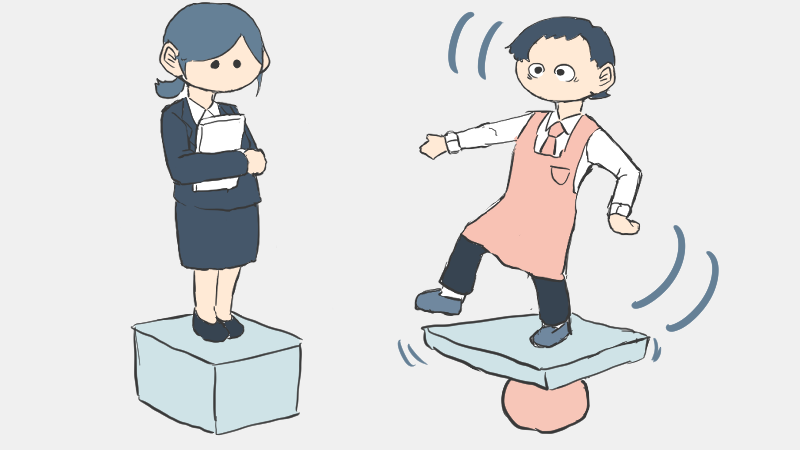Labor Contract Act
Background of the establishment
The Labor Contract Law clearly stipulates basic rules concerning labor contracts. It was enacted in 2008 with the aim of preventing individual labor disputes, protecting workers, and stabilizing individual labor relations.
In recent years, the scope of labor disputes in Japan has shifted from collective to individual labor relations. One of the reasons that there are many problems in individual labor relations is thought to be the diversification of employment patterns and the spread of performance-based remuneration in the Japanese labor market.
Revision of the Labor Contract Act
On August 10, 2012 and April 1, 2013, the contents of contracts were revised mainly for fixed-term contract workers (Temporary employees, part-time employees, etc.). At that time, about 30% of fixed-term contract workers had to renew their fixed-term contracts repeatedly for a total of more than five years.
Under these circumstances, revisions were made with the aim of eliminating anxiety over the employment of fixed-term contract workers, correcting unfair working conditions for fixed-term contract workers, and creating an environment in which workers can work with peace of mind.

However, with the revision of the Labor Dispatch Act in 2015, there was concern that employers (corporate side) might unilaterally terminate contracts, and it was confirmed that there were cases of termination of employment. Because 2018 was the first year covered by both laws, the issue is sometimes called "The Year 2018 Problem".
Fixed-term contract
A fixed-term labor contract, such as a one-year contract or a six-month contract
Main contents of the revision
Conversion to Permanent Work Contracts
If a fixed-term contract is renewed on or after April 1, 2013, and the term of the contract exceeds five years in total, workers can apply to the company for conversion to a fixed-term contract. It means that a worker can change the contract to a permanent contract after April 1, 2018.
In the "The Year 2018 Problem" the problem was that in order to avoid an increase in labor costs, the company refused to accept the workers' request to switch to a permanent contract, and instead terminated the workers.
Legalization of "Termination of Employment Doctrine"
In a fixed-term labor contract, if the employer (corporate side) refuses to renew the contract, the term of the contract expires and the employment is terminated, and the situation like this is refered as "employment termination". Even before the revision, based on the viewpoint of protecting workers, Supreme Court has precedented established rules (Termination of Employment Doctrine) that nullify the termination of employment under certain conditions.
The revision did not change the scope or contents of the Termination of Employment Doctrine, but clearly stated the Termination of Employment Doctrine in the provisions of the Labor Contract Law.
Prohibition of unreasonable working conditions
Making any unreasonable difference in working conditions between limited-term contract workers and permanent workers under the same employer are prohibited due to the limited term of the contract. Specific requirements include the availability of accident compensation, education and training, and benefits.
Labor Contract Act and Labor Standards Act
Labor Standards Act is "mandatory law" and any penalty will be applied to violations. On the other hand, Labor Contract Law is "voluntary law" and there are no penalties. Therefore, labor-management disputes must be resolved through a labor tribunal.
The purpose is to prevent individual labor disputes and to protect workers and stabilize individual labor relations.
In 2012 and 13, the law was revised to eliminate anxiety over the termination of employment and to correct unfair working conditions for fixed-term contract workers.